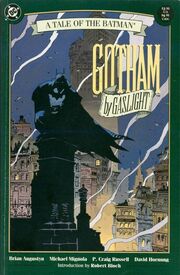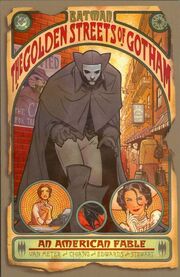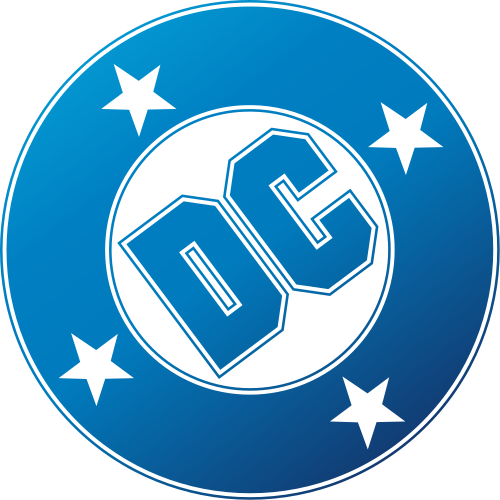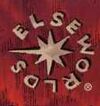No edit summary Tag: sourceedit |
No edit summary |
||
| (15 intermediate revisions by 7 users not shown) | |||
| Line 1: | Line 1: | ||
| − | {{Quote|In |
+ | {{Quote|In Elseworlds, super-heroes are taken from their usual settings and put into strange times and places - some that have existed, and others that can't, couldn't or shouldn't exist. The result is stories that make characters who are as familiar as yesterday seem as fresh as tomorrow.}} |
{{DC Database:Concept Template |
{{DC Database:Concept Template |
||
| Image = Elseworlds logo.jpg |
| Image = Elseworlds logo.jpg |
||
| Line 5: | Line 5: | ||
| Aliases = |
| Aliases = |
||
| − | | First = |
+ | | First = ''[[Batman: Gotham by Gaslight]]'' |
| ⚫ | |||
| − | | HistoryText = |
||
| ⚫ | |||
Unlike its [[MDP:Marvel Comics|Marvel Comics]] counterpart ''[[MDP:What If? Comic Books|What If...?]]'', which bases its stories on a single point of divergence from the regular continuity, most ''Elseworlds'' stories instead take place in entirely self-contained continuities whose only connection to the canon DC continuity are the presence of familiar DC characters. |
Unlike its [[MDP:Marvel Comics|Marvel Comics]] counterpart ''[[MDP:What If? Comic Books|What If...?]]'', which bases its stories on a single point of divergence from the regular continuity, most ''Elseworlds'' stories instead take place in entirely self-contained continuities whose only connection to the canon DC continuity are the presence of familiar DC characters. |
||
| + | ===Imaginary Stories=== |
||
| − | ==History== |
||
| − | + | {{main|Imaginary Stories}} |
|
| ⚫ | For several years from 1942<ref>{{c|Superman Vol 1 183}} proclaimed that "Superman, Cartoon Hero!" (a reprint of "Superman, Matinee Idol!" from {{c|Superman Vol 1 19}}) was the "Very First Imaginary Story!"</ref> to the mid-1980s, particularly during the 1960s [[Silver Age]] of Comic Books era, DC Comics published various stories about their title characters which did not take place in their regular continuity. Most of these stories were labeled "[[Imaginary Stories]]" and featured alternate histories of characters. Although the majority of Imaginary Stories were published in various ''[[Superman]]'' comics, a few Imaginary Stories appeared in ''[[Batman]]'' comics and other DC publications. |
||
| + | Since imaginary stories were set out of continuity, writers were allowed to write tales that altered the status quo or would be not possible in the main continuity such like Superman being murdered by ''[[Lex Luthor]]'' ({{c|Superman Vol 1 149}}), Superman being split in two selves and succeeding in all of his goals ({{c|Superman Vol 1 162}}), ''[[Jimmy Olsen]]'' getting married to ''[[Supergirl]]'' ({{c|Superman's Pal, Jimmy Olsen Vol 1 57}}) or Batman considering retirement ({{c|Batman Vol 1 300}}). |
||
| ⚫ | For several years from the |
||
| − | The last official "Imaginary Story" ever published |
+ | The last official "Imaginary Story" ever published was [[Alan Moore]]'s [[Whatever Happened to the Man of Tomorrow?]], that appeared in {{c|Superman Vol 1 423}} and {{c|Action Comics Vol 1 583}} (September 1986). The ''Elseworlds'' series of self-contained stories are essentially Imaginary Stories under a newer label and a wider scope of possibilities. |
===Elseworlds imprint=== |
===Elseworlds imprint=== |
||
| ⚫ | |||
| − | The first ''Elseworlds'' title was [[Batman: Gotham by Gaslight]] (1989), by [[Brian Augustyn]] and [[Mike Mignola]], and edited by [[Mark Waid]], which featured a Victorian Age version of the superhero [[Batman]] hunting [[Jack the Ripper]], who has come to [[Gotham City]]. This title was not originally published as an ''Elseworlds'' comic, but the success of this concept lead to the ''Elseworlds'' concept and this title was retroactively declared the first ''Elseworlds''. |
+ | The first ''Elseworlds'' title was ''[[Batman: Gotham by Gaslight]]'' (1989), by [[Brian Augustyn]] and [[Mike Mignola]], and edited by [[Mark Waid]], which featured a Victorian Age version of the superhero [[Batman]] hunting [[Jack the Ripper]], who has come to [[Gotham City]]. This title was not originally published as an ''Elseworlds'' comic, but the success of this concept lead to the ''Elseworlds'' concept and this title was retroactively declared the first ''Elseworlds''. |
| ⚫ | |||
| ⚫ | |||
| ⚫ | |||
| ⚫ | DC published various Elseworlds titles on-and-off up to 2004, but as of 2005, no other ''Elseworlds'' books have been planned. Around the time of the release of ''[[Batman: Detective No. 27]]'', editor [[Mike Carlin]] noted that DC had scaled back the production of Elseworlds books in order to "put the luster back on them." Several titles that were announced as Elseworlds books prior to this have yet to see publication, such as ''Generations 4'' ( |
||
| ⚫ | DC published various Elseworlds titles on-and-off up to 2004, but as of 2005, no other ''Elseworlds'' books have been planned. Around the time of the release of ''[[Batman: Detective No. 27]]'', editor [[Mike Carlin]] noted that DC had scaled back the production of Elseworlds books in order to "put the luster back on them." Several titles that were announced as Elseworlds books prior to this have yet to see publication, such as ''Generations 4'' (announced by [[John Byrne]] but cancelled due to poor sales and negative critical reception of {{v|Superman and Batman: Generations Vol 3}}), ''Superboy's Legion 2'' (rumored sequel by [[Alan Davis]]; presumably planned after he finished {{v|Justice League: Another Nail Vol 1}}) and ''The [[Teen Titans (New Earth)|Teen Titans]] Swingin' Elseworlds Special'' (cancelled, possibly due to controversial material concerning [[Wikipedia:John F. Kennedy|John F. Kennedy]]; eventually published as {{c|Teen Titans Lost Annual Vol 1 1}}). |
||
| ⚫ | |||
| + | |||
| ⚫ | |||
[[Image:Batman Golden Streets of Gotham.jpg|right|thumb]] |
[[Image:Batman Golden Streets of Gotham.jpg|right|thumb]] |
||
| − | Other ''Elseworlds'' titles include |
+ | Other ''Elseworlds'' titles include {{c|Justice League: The Nail Vol 1}}, which theorizes a world without [[Kal-El (The Nail)|Superman]], in which the [[Justice League of America]] has still been formed, but chaos reigns without a proper champion of the world's ideals. In ''[[Batman: I, Joker]]'', a futuristic [[Gotham City]] is led by a cult that follows Batman's descendant, a self-proclaimed god known only as "The Bruce". In ''[[Flashpoint]]'', Barry Allen (The [[Flash]]) takes a bullet meant for [[Wikipedia:John F. Kennedy|John F. Kennedy]], paralyzing him from the neck down. In ''[[Thrillkiller]]'', [[Batgirl]] and [[Robin]] fight a female [[Bianca Steeplechase (Earth-37)|Joker]] in the 1960's. ''[[Superman: Red Son]]'' ponders Superman growing up in the Soviet Union and later succeeding [[Wikipedia:Joseph Stalin|Stalin]] as Soviet Premier. In ''[[Elseworld's Finest: Supergirl & Batgirl Vol 1 1|Elseworld's Finest: Supergirl & Batgirl]]'', [[Lex Luthor]] kills a newly-landed baby Kal-El and Barbara Gordon's parents, prompting Supergirl and Batgirl to become Metropolis and Gotham City's protectors. |
| − | One of the most famous ''Elseworlds'' titles is |
+ | One of the most famous ''Elseworlds'' titles is {{v|Kingdom Come Vol 1}}, a miniseries in which a new, violent generation of superheroes replaces the idealism of DC's classic heroes, and the conflict between the two groups ignites an apocalyptic battle. {{v|The Kingdom Vol 1}} is the sequel to ''Kingdom Come'' and formally established the concept of [[Hypertime]]. |
| − | To readers of DC comics, Elseworlds can fall under any writing style not affiliated with the DC comics universe. Titles like ''[[Batman: The Dark Knight Returns|Batman: The Dark Knight Returns]]'' (1986), ''Superman: [[Whatever Happened to the Man of Tomorrow?]]'' (1986), |
+ | To readers of DC comics, Elseworlds can fall under any writing style not affiliated with the DC comics universe. Titles like ''[[Batman: The Dark Knight Returns|Batman: The Dark Knight Returns]]'' (1986), ''Superman: [[Whatever Happened to the Man of Tomorrow?]]'' (1986), {{c|Batman Chronicles Vol 1 21}} (May 2000, solicited as Elseworlds, but has no logo), ''[[Bizarro Comics]]'' (June 2001, which featured the story "Letitia Lerner, Superman's Babysitter" from the canceled ''Elseworlds 80-Page Giant''), {{v|The Dark Knight Strikes Again Vol 1}} (2001), and {{v|Superman: Secret Identity Vol 1}} (2004) were referred to as Elseworlds in the DC Universe without the name brand logo. Except when otherwise noted, most of the stories in the monthly series {{v|Batman: Legends of the Dark Knight Vol 1}} are considered canon, even though some have tales of Batman in the future, which are deemed non-canonical. In 1994, [[DC Comics]] Elseworlds collaborated with the DC yearly summer Annual edition comic books. |
| RelatedText = |
| RelatedText = |
||
| Line 41: | Line 42: | ||
| Notes = * Among the montage of [[Hypertime]] realities [[The Kingdom Vol 1 2|The Kingdom #2]] were images invoking several [[Pre-Crisis]] and Elseworlds stories implying that there were realities similar if not identical to them in Hypertime. |
| Notes = * Among the montage of [[Hypertime]] realities [[The Kingdom Vol 1 2|The Kingdom #2]] were images invoking several [[Pre-Crisis]] and Elseworlds stories implying that there were realities similar if not identical to them in Hypertime. |
||
* [[Crisis on Infinite Earths: The Compendium]] confirmed that some of the Elseworlds were part of [[Hypertime]]. |
* [[Crisis on Infinite Earths: The Compendium]] confirmed that some of the Elseworlds were part of [[Hypertime]]. |
||
| + | | Trivia = * Elseworlds was also the story title of {{c|JLA Vol 1 9}} which continued the {{c|JLA Vol 1 8}}'s [[Imaginary Stories]] plot. |
||
| − | | Trivia = |
||
| Links = |
| Links = |
||
| − | * [ |
+ | * [https://blaklion.best.vwh.net/timelineElse.html Timeline] |
| − | * [ |
+ | * [https://members.tripod.com/~YJFAN/Elseworlds.html Fanpage] |
}} |
}} |
||
Revision as of 01:59, 20 August 2019
History
Elseworlds is the publication imprint for a group of comic books produced by DC Comics that take place outside the company's canon:
Unlike its Marvel Comics counterpart What If...?, which bases its stories on a single point of divergence from the regular continuity, most Elseworlds stories instead take place in entirely self-contained continuities whose only connection to the canon DC continuity are the presence of familiar DC characters.
Imaginary Stories
Main article: Imaginary Stories
For several years from 1942[1] to the mid-1980s, particularly during the 1960s Silver Age of Comic Books era, DC Comics published various stories about their title characters which did not take place in their regular continuity. Most of these stories were labeled "Imaginary Stories" and featured alternate histories of characters. Although the majority of Imaginary Stories were published in various Superman comics, a few Imaginary Stories appeared in Batman comics and other DC publications.
Since imaginary stories were set out of continuity, writers were allowed to write tales that altered the status quo or would be not possible in the main continuity such like Superman being murdered by Lex Luthor (Superman #149), Superman being split in two selves and succeeding in all of his goals (Superman #162), Jimmy Olsen getting married to Supergirl (Superman's Pal, Jimmy Olsen #57) or Batman considering retirement (Batman #300).
The last official "Imaginary Story" ever published was Alan Moore's Whatever Happened to the Man of Tomorrow?, that appeared in Superman #423 and Action Comics #583 (September 1986). The Elseworlds series of self-contained stories are essentially Imaginary Stories under a newer label and a wider scope of possibilities.
Elseworlds imprint

Gotham by Gaslight—a tale of the Batman; illustration by Mike Mignola
The first Elseworlds title was Batman: Gotham by Gaslight (1989), by Brian Augustyn and Mike Mignola, and edited by Mark Waid, which featured a Victorian Age version of the superhero Batman hunting Jack the Ripper, who has come to Gotham City. This title was not originally published as an Elseworlds comic, but the success of this concept lead to the Elseworlds concept and this title was retroactively declared the first Elseworlds.
The first book to feature the familiar Elseworlds logo is Batman: Holy Terror, from 1991.
DC published various Elseworlds titles on-and-off up to 2004, but as of 2005, no other Elseworlds books have been planned. Around the time of the release of Batman: Detective No. 27, editor Mike Carlin noted that DC had scaled back the production of Elseworlds books in order to "put the luster back on them." Several titles that were announced as Elseworlds books prior to this have yet to see publication, such as Generations 4 (announced by John Byrne but cancelled due to poor sales and negative critical reception of Superman and Batman: Generations (Volume 3)), Superboy's Legion 2 (rumored sequel by Alan Davis; presumably planned after he finished Justice League: Another Nail (Volume 1)) and The Teen Titans Swingin' Elseworlds Special (cancelled, possibly due to controversial material concerning John F. Kennedy; eventually published as Teen Titans Lost Annual #1).
Noted titles

Other Elseworlds titles include Justice League: The Nail #, which theorizes a world without Superman, in which the Justice League of America has still been formed, but chaos reigns without a proper champion of the world's ideals. In Batman: I, Joker, a futuristic Gotham City is led by a cult that follows Batman's descendant, a self-proclaimed god known only as "The Bruce". In Flashpoint, Barry Allen (The Flash) takes a bullet meant for John F. Kennedy, paralyzing him from the neck down. In Thrillkiller, Batgirl and Robin fight a female Joker in the 1960's. Superman: Red Son ponders Superman growing up in the Soviet Union and later succeeding Stalin as Soviet Premier. In Elseworld's Finest: Supergirl & Batgirl, Lex Luthor kills a newly-landed baby Kal-El and Barbara Gordon's parents, prompting Supergirl and Batgirl to become Metropolis and Gotham City's protectors.
One of the most famous Elseworlds titles is Kingdom Come (Volume 1), a miniseries in which a new, violent generation of superheroes replaces the idealism of DC's classic heroes, and the conflict between the two groups ignites an apocalyptic battle. The Kingdom (Volume 1) is the sequel to Kingdom Come and formally established the concept of Hypertime.
To readers of DC comics, Elseworlds can fall under any writing style not affiliated with the DC comics universe. Titles like Batman: The Dark Knight Returns (1986), Superman: Whatever Happened to the Man of Tomorrow? (1986), Batman Chronicles #21 (May 2000, solicited as Elseworlds, but has no logo), Bizarro Comics (June 2001, which featured the story "Letitia Lerner, Superman's Babysitter" from the canceled Elseworlds 80-Page Giant), The Dark Knight Strikes Again (Volume 1) (2001), and Superman: Secret Identity (Volume 1) (2004) were referred to as Elseworlds in the DC Universe without the name brand logo. Except when otherwise noted, most of the stories in the monthly series Batman: Legends of the Dark Knight (Volume 1) are considered canon, even though some have tales of Batman in the future, which are deemed non-canonical. In 1994, DC Comics Elseworlds collaborated with the DC yearly summer Annual edition comic books.
Notes
- Among the montage of Hypertime realities The Kingdom #2 were images invoking several Pre-Crisis and Elseworlds stories implying that there were realities similar if not identical to them in Hypertime.
- Crisis on Infinite Earths: The Compendium confirmed that some of the Elseworlds were part of Hypertime.
Trivia
- Elseworlds was also the story title of JLA #9 which continued the JLA #8's Imaginary Stories plot.
Related Articles
See Also
Links and References
- ↑ Superman #183 proclaimed that "Superman, Cartoon Hero!" (a reprint of "Superman, Matinee Idol!" from Superman #19) was the "Very First Imaginary Story!"
| DC Comics Imprint Although at one point it may have been an independent publisher, this company is or was owned by DC Comics, and used as a DC Comics Imprint. This template will categorize articles that include it into the Imprints category. |
| Previous Bloodlines |
Annual Crossover 1994 |
Next Year One |
| Elseworlds Annual This issue was part of the 1994 Elseworlds Annuals crossover event, in which every annual was an alternate universe story of their respective title characters. This template will categorize articles that include it into the Annuals and Elseworlds Annuals category. Checklist
Action Comics Annual #6 • Adventures of Superman Annual #6 • Batman Annual #18 • Batman: Legends of the Dark Knight Annual #4 • Batman: Shadow of the Bat Annual #2 • Catwoman Annual #1 • Deathstroke the Terminator Annual #3 • Detective Comics Annual #7 • The Flash Annual #7 • Green Lantern Annual #3 • Justice League America Annual #8 • Justice League International Annual #5 • L.E.G.I.O.N. Annual #5 • Legionnaires Annual #1 • Legion of Super-Heroes Annual #5 • Lobo Annual #2 • New Titans Annual #10 • Robin Annual #3 • Steel Annual #1 • Superboy Annual #1 • Superman Annual #6 • Superman: The Man of Steel Annual #3 • Team Titans Annual #2 |



